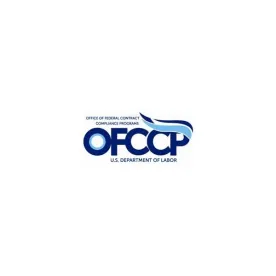Although most federal contractors have been focused on compliance with COVID-19 vaccination mandates (as discussed here and here), it’s important to take a moment to look at another compliance topic related to equal employment opportunity obligations. On 2 December 2021, the Office of Federal Contract Compliance Programs (OFCCP) announced it is moving forward with an Affirmative Action Program (AAP) Verification Interface (Contractor Portal) to facilitate receipt of certifications verifying compliance. The Contractor Portal will provide a mechanism for covered federal contractors and subcontractors to certify annually whether they have complied with their obligations to develop and maintain AAPs for each establishment or functional unit,1 as applicable. Further, the Contractor Portal will establish a secure method for contractors scheduled for compliance evaluations to submit their AAPs to OFCCP.
As background, affirmative action requirements help ensure that applicants and employees of federal contractors have equal employment opportunity without regard to their race, color, religion, sex, sexual orientation, gender identity, national origin, disability, or status as a protected veteran. Covered federal contractors that satisfy certain thresholds are required to develop and maintain AAPs on an annual basis. More specifically, federal contractors that hold a contract of US$50,000 or more and employ 50 or more employees are required to develop and maintain AAPs pursuant to Executive Order 112462 and Section 503 of the Rehabilitation Act of 1973.3 Federal contractors with at least 50 employees and a contract of US$150,000 or more have additional AAP obligations under the Vietnam Era Veterans’ Readjustment Assistance Act of 1974.4 Covered contractors must develop an AAP within 120 days of the commencement of the contract and update the AAP annually. These obligations apply to federal subcontractors as well.
The Contractor Portal was initiated in the Trump administration through OFCCP Directive 2018-07, which was in response to a U.S. Government Accountability Office (GAO) recommendation, and then through an information collection request submitted for notice and comment through the Office of Management and Budget (OMB). The Biden administration has since continued this program, with OMB approving the information collection request on 31 August 2021. Supply and service contractors and subcontractors who meet certain jurisdictional thresholds are required to use the Contactor Portal to register and certify their AAP compliance. However, registration with the Contractor Portal is not required at this time for construction contractors who are not also supply and service contractors, as construction contractors are not presently subject to annual certification.
Part of the impetus for the Contractor Portal stems from a 2016 GAO Report that found the OFCCP “has no process for ensuring that the tens of thousands of establishments that have signed a qualifying federal contract have developed an AAP within 120 days of the commencement of the contract, or updated it annually.”5 Further, the report found that in 2015, an estimated 85% of covered federal contractors may not have been in compliance with the AAP obligation.6
Beginning 1 February 2022, existing covered contractors and subcontractors may register to gain access to the Contractor Portal. Covered federal contractors and subcontractors will also receive an e-mail, to the extent email contact information is available to OFCCP, inviting them to register. As of March 31, 2022, federal contractors and subcontractors will have access to the certification feature in the Contractor Portal to begin the compliance process. Existing contractors and subcontractors must verify compliance for each establishment (for traditional establishment-based AAP programs) or line of business (for Functional Affirmative Action Programs) by 30 June 2022. Newly-covered contractors will have 120 days to develop their required AAP(s), and must register and certify compliance in the Contractor Portal within 90 days of developing their AAP(s).
It is likely that a failure to comply will lead to some form of enforcement action by OFCCP, either through an increased chance of audit (by using verification as part of the scheduling criteria) or through direct enforcement action such as a show cause notice. Notably, failure to comply with AAP obligations can ultimately lead to debarment and cancellation of federal contracts. Likewise, a false certification can lead to serious civil and criminal penalties. It is important for contractors and subcontractors to take the requirement seriously and make sure they have everything in place to certify compliance no later than 30 June 2022.
Covered contractors and subcontractors should be aware that verification through the Contractor Portal will not prevent them from being audited subsequently. Therefore, covered contractors should not only certify, but also continue to maintain their AAPs in an audit-ready condition.
Ultimately, contractors and subcontractors with compliance programs in place should be able to certify easily through the Contractor Portal, although they should consult with counsel as to the certification requirement itself to confirm they have complied with all OFCCP regulations in place. Those that do not have a compliance program as required under applicable federal regulations need to use the period before 30 June 2022 to develop an AAP(s) and prepare to certify, and should also consult with counsel as soon as possible.
1 The implementing regulations for Executive Order 11246 allow federal supply and service contractors to develop AAPs that are based on a business function or business unit rather than AAPs based on covered contractor establishments. These functional AAPs permit the contractor to evaluate whether its affirmative action policies for a functional or business unit, instead of a particular establishment, are sufficient to ensure equal employment opportunity for applicants and employees.
2 Executive Order 11246 requires affirmative action and prohibits federal contractors from discriminating on the basis of race, color, religion, sex, sexual orientation, gender identity, or national origin. Contractors are also prohibited from discriminating against applicants or employees because they inquire about, discuss, or disclose their compensation or that of others, subject to certain limitations. (https://www.dol.gov/agencies/ofccp/executive-order-11246/as-amended) (last visited 2 December 2021)
3 Section 503 prohibits federal contractors and subcontractors from discriminating in employment against individuals with disabilities and requires that employers take affirmative action to recruit, hire, promote, and retain these individuals.
4 The Vietnam Era Veterans’ Readjustment Assistance Act is a law that prohibits federal contractors and subcontractors from discriminating in employment against protected veterans and requires that employers take affirmative action to recruit, hire, promote, and retain these individuals.
5 See US GAO, Report 16-750, Equal Employment Opportunity: Strengthening Oversight Could Improve Federal Contractor Nondiscrimination Compliance (2016).
6 Id.





 />i
/>i

